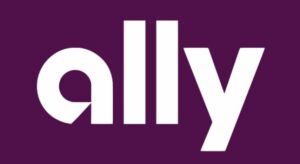When you are lacking money, loans are the first thing that comes to your mind. If your income and credit score is good, you can easily get loans. But if your income is low, you will face difficulty getting a loan. This is when income based loans come into the picture.
Income-based loans are basically those loans where the lender offers you money depending on your income. These loans are very helpful for people with low income because it allows them to maintain their budget as well as repay the loan on time. You can get loans based on employment from banks, direct lenders, credit unions, and online money lending services.
In this article, we are going to tell you everything about income-based loans including the top 5 lenders for these loans. Not just this, but we will also tell you when you should go for income-based loans and things to consider while selecting a loan based on income. Now let’s dive deeper into it.
Best Income Based Loans
In this section, we are going to tell you about the top 5 loans based on employment. This list only includes online lenders, so you can get money from the comfort of your home.
1. LendingClub

The first lender in our list of personal loans based on income only is LendingClub. They are one of the most trusted and known online money-lending services throughout the U.S.A. They offer loans ranging from $1,000 to $40,000. The best part about LendingClub is, they do not come with any minimum monthly income requirement. So no matter how low your monthly income is, you will definitely get an income based personal loan.
The loan term may range from 36 to 60 months depending on your loan amount, income, and credit score. Moreover, you will only get a loan from LendingClub, if your credit score is 600 or more. The annual percentage rate of these loans can vary from 7.04% to 35.89%. The APR depends on your loan amount and credit score.
Also, LendingClub loans come with an origination fee of 3.00% to 6.00%. So once you pay the origination fee, then only they will provide you with the funding. Their working process is very fast, if you meet their eligibility criteria, they will approve your loan request and deposit the loan amount into your bank account within just one to two business days.
Features
- Loan Amount: $1,000 to $40,000
- Repayment Period: 36 to 60 months
- APR: 7.04% to 35.89%
- Origination Fee: 3.00% to 6.00%
- Minimum Required Credit Score: 600 points
- Funding Period: 1 to 2 business days
Pros
- They do not have any minimum income requirement.
- They also offer joint loans.
- You can select the best loan from multiple loan offers.
- Trustworthy lenders with thousands of positive ratings and reviews online.
- You can apply for pre-qualification with a soft credit check with absolutely no harm to your credit score.
Cons
- The APR is very high for bad credit holders.
- The loans come with a high origination fee.
- You can use the loan funds for limited purposes only.
- Strict loan terms and rules.
- You will need to provide your income or job proof.
2. Upgrade

The next lender in our list for loans based on income is Upgrade. They offer loans ranging from $1,000 to $50,000. They offer personal loans for good credit as well as personal loans for bad credit. Upgrade loans come with an annual percentage range of 5.94% to 35.47%. This means that if your credit score is above 750 points then you can easily get a loan from Upgrade with an APR of as low as 5.94%.
In order to get a loan from Upgrade, you need a minimum credit score of at least 560 points otherwise your loan request would simply be denied. As soon as you apply for personal loans based on income at Upgrade, they send your loan application to multiple lenders and then you can select the loan offer that fulfills all your needs.
Moreover, they also offer discounted APR if you go for the autopay option. So now you do not need to worry about missing your loan installment payment dates. You can just simply select the autopay option and the installment amount would automatically be deducted from your bank account, and you can also enjoy a low APR.
Features
- Loan Amount: $1,000 to $50,000
- Repayment Period: 36 to 60 months
- APR: 5.94% to 35.47%
- Origination Fee: Up to 8.00%
- Minimum Required Credit Score: 560 points
- Funding Period: Same day
Pros
- They offer direct credit options for debt consolidation.
- You can repay the loan early without paying any extra fee.
- They do not ask for any minimum income.
- You can get a 1.00% discount on APR with the autopay option.
- A good option for average credit score options.
Cons
- The extremely high-interest rate for people with a bad credit score.
- The origination fee can be up to 8.00%.
- You will have to pay a high late fee if you fail to pay the installment on time.
- The loan amount can be used for limited purposes.
- They do not offer joint loans.
3. LendingPoint

Are you looking for loans based on employment? If yes, then you must consider LendingPoint. LendingPoint is a popular lending service in the U.S.A. and most borrowers are satisfied with their services. They offer loans ranging from $2,000 to $36,000. If you are looking for small personal loans based on income then you can go for LendingPoint.
LendingPoint loans come with an APR ranging from 9.99% to 35.99%. The best part about LendingPoint is they come with a limited APR of 35.99%. So no matter how bad your credit score is, no lender can ask you for a higher APR than 35.99%. In order to get a personal loan from LendingPoint, you need to have a minimum credit score of 590 points.
Also, you will only get a loan from LendingPoint if your annual income is at least $20,000, your age is 18 years and more and you are a citizen of the U.S.A. They do not offer co-signer or joint loans so if your credit score is bad or zero, you might find it difficult to get a loan from LendingPoint. These loans come with a loan term of 24 to 60 months.
Features
- Loan Amount: $2,000 to $36,000
- Repayment Period: 24 to 60 months
- APR: 9.99% to 35.99%
- Origination Fee: Up to 6.00%
- Minimum Required Credit Score: 590 points
- Late Fee: Up to $30.00
- Funding Period: 1 business day
Pros
- Instant loan funding with the deposit within the same day or the next day.
- Easy loan application and approval process.
- You can use the loan amount for various purposes.
- They offer pre-qualification with a soft credit check.
- You can repay the loan early without paying any prepayment fee.
- The required minimum annual income is low.
Cons
- The origination fee can be up to 6.00%.
- Low maximum loan amount.
- They do not offer discounted APR for autopay.
- If you miss any installment payment, you will need to pay a late fee which can be up to $30.00.
- They do not offer co-signer or joint loans.
- LendingPoint does not offer money lending services in Nevada and West Virginia.
4. Ally

If you want to apply for a loan at Ally, you can first apply for pre-qualification to get an idea about the loan amount, APR, and loan term that you might get. Ally will conduct a soft inquiry of your credit without hurting your credit score and will let you know if you would be able to get a loan from Ally or not.
If you pre-qualify for this loan, you can go to their official website and apply for a loan. Ally offers different types of loans including personal loans, medical loans, auto loans, etc. Moreover, Ally is not a direct lender, but they act as a link between the lenders and the borrowers. They send your loan application to multiple lenders and then you start receiving loan offers.
They offer loans ranging from $500 to $65,000. The APR can be up to 26.99%, which is very low compared to other money lending services. Their services are extremely fast and you can receive the loan amount as soon as the same day. The only problem with Ally is, they do not offer their services in all the states of the U.S.A.
Features
- Maximum Loan Amount: $500
- Preferred Credit Score: None
- Interest Rate: None
- Subscription Fee: $1.00
- Loan Funding: Up to 3 days after loan approval
- Fee: Optional
- Minimum Monthly Income: $1,000
- Loan Term: Until next payday
Pros
- They do not check your credit.
- The fee is optional, you can pay them a tip if you like their services.
- Good ratings and reviews online.
- They do not charge any interest.
- They offer cash advance for unemployed people.
- They also offer budgeting tools in their application which allows you to keep a track of your budget.
- You do not necessarily need to have a job, you can get cash advance on unemployment benefits as well.
Cons
- You need to have a monthly income of at least $1,000.
- The loan repayment terms are really short.
5. LightStream

If you need a higher income based loan then you can go with LightStream. They offer loans ranging from $5,000 to $100,000. In order to get a loan from LightStream at an affordable APR, you need to have a credit score of at least 660 points. You need to repay the LightStream loans within a period of 2 to 7 years depending on your loan amount. Although, the maximum loan term for home improvement loans is 12 years.
LightStream offers loans at an annual percentage rate of 6.99% to 23.99% Also, if you want to repay the loan early, you can do so without paying any extra pre-payment fee. As soon as you apply for a loan at LightStream, you start receiving loan offers from various lenders within minutes. This allows you to select the best loan for yourself.
Their loan approval and loan funding process is very fast. If you fulfill their eligibility criteria, they will immediately approve your loan request and deposit the loan amount into your bank account within the same day or the next day.
Features
- Maximum Loan Amount: $500
- Preferred Credit Score: None
- Interest Rate: None
- Subscription Fee: $1.00
- Loan Funding: Up to 3 days after loan approval
- Fee: Optional
- Minimum Monthly Income: $1,000
- Loan Term: Until next payday
Pros
- They do not check your credit.
- The fee is optional, you can pay them a tip if you like their services.
- Good ratings and reviews online.
- They do not charge any interest.
- They offer cash advance for unemployed people.
- They also offer budgeting tools in their application which allows you to keep a track of your budget.
- You do not necessarily need to have a job, you can get cash advance on unemployment benefits as well.
Cons
- You need to have a monthly income of at least $1,000.
- The loan repayment terms are really short.
What are Income Based Loans?

Income based loans are a type of loan where the borrower’s income is taken into account when determining the terms and conditions of the loan. These loans are designed to help borrowers who may not have a high credit score or a low income. These loans typically come with lower interest rates, longer repayment periods, and smaller monthly payments compared to traditional loans. This is because the lender takes into consideration the borrower’s income and ability to repay the loan over time.
Examples of loans based on employment include student loans, where the borrower’s income is considered when determining the repayment plan, and income-driven repayment plans for federal student loans. Some lenders also offer income-based personal loans and mortgages.
It is important to note that loans based on employment may have different eligibility requirements and may not be available to all borrowers. Additionally, borrowers may need to provide proof of income and meet other criteria to qualify for these types of loans.
Merits of Income Based Loans
Now that you know what income-based loans are, let’s have a look at some of the advantages of these loans. These points will help you decide if loans based on employment would work for you or not.
1. Lower Monthly Payments
One of the main benefits of income-based loans is that they often come with lower monthly payments. This can make the loan more affordable and easier to manage, especially for borrowers with lower incomes.
2. Longer Repayment Periods
Loans based on employment may also offer longer repayment periods than traditional loans, which can help borrowers spread out their payments over a longer period of time. This prevents the strain of loans on people with low incomes.
3. Flexible Repayment Options
Many income based loans offer flexible repayment options, such as income-driven repayment plans, which adjust the monthly payment amount based on the borrower’s income. This can help borrowers avoid defaulting on their loans if they experience a decrease in income or financial hardship.
4. Improved Credit Score
If you make consistent on-time payments, loans based on employment can help you improve your credit score. This can also help them qualify for better loan terms and lower interest rates in the future.
5. Access to Funding
For borrowers who may not qualify for traditional loans due to a low credit score or income level, loans based on employment can provide access to funding that they may not have otherwise.
Demerits of Income Based Loans
While loans based on employment can offer several advantages, they also have some potential drawbacks that you must be aware of before taking out a loan. Here is a list of some of the demerits of these loans.
1. Longer Repayment Periods
While longer repayment periods can be an advantage for some borrowers, they can also mean that the borrower will end up paying more interest over time. This can result in you paying back more than the original loan amount.
2. Limited Loan Amounts
Income-based loans may come with lower loan amounts than traditional loans. This can be a disadvantage for people who need a larger amount of funding. Whereas, if you go for any normal loan, you can have access to a higher loan amount.
3. Income Verification Requirements
Loans based on employment typically require borrowers to provide proof of income. This can be a challenge for borrowers who have irregular or self-employment income. Also, all the paperwork and documentation can be hectic for some people, especially for those who do not get any time from their job.
4. Strict Eligibility Criteria
Income-based loans may have stricter eligibility requirements than traditional loans. This can make it difficult for some people to qualify for these types of loans. Some lenders might also ask you to deposit income proof, paychecks, etc to prove that you have a stable monthly income.
5. Tax Implications
Some income based personal loan programs may have tax implications, particularly for loan forgiveness programs. For example, loan forgiveness may be considered taxable income, which can result in a larger tax bill for the borrower.
Types of Loans Based on Income
1. Payday Loans
Payday loans are short-term & high-interest loans typically due on the borrower’s next payday. These loans are designed to provide borrowers with quick access to cash when they need it, often for unexpected expenses or emergencies. These loans are generally for small amounts, usually ranging from $100 to $1,000, and are mostly unsecured, meaning they do not require collateral.
In order to get this loan, you will need to provide proof of your income and a bank account to deposit the loan funds. The lender will only offer you a loan amount that you would be able to repay with your current monthly salary. Payday loans often come with high-interest rates and fees, which can make them very expensive for people with a low income.
2. Auto Loans

Another income based loan on your list is an auto loan. An auto loan is a type of loan that is used to finance the purchase of a vehicle, such as a car, truck, or motorcycle. Auto loans are mostly secured loans which means that the vehicle itself serves as collateral for the loan. Auto loans are offered by a variety of lenders, including banks, credit unions, and auto dealerships.
The terms and conditions of the loan, such as the interest rate and repayment period totally depend on the lender and the credit score and income of the borrower. Auto loans are available for both new and used vehicles (i.e auto loans for older cars). The interest rates can be fixed as well as variable. Here you will mainly need to make regular monthly payments on the loan until the loan is fully repaid.
3. Installment Loans
Installment loans are also a type of personal loan based on income. An installment loan is repaid in regular, fixed payments over a set period of time. Installment loans can be used for a variety of purposes, such as to finance a large purchase, consolidate debt, or cover unexpected expenses.
The repayment period for installment loans can range from a few months to several years, depending on the amount of the loan and the terms and conditions set by the lender. Each payment made by the borrower includes a portion of the principal loan amount as well as interest and any applicable fees.
Installment loans can be both secured as well as unsecured and may have a fixed or variable interest rate. Secured installment loans are typically backed by collateral, such as a car or house, which reduces the risk for the lender and can result in a lower interest rate for the borrower. Unsecured installment loans do not require collateral and may have a higher interest rate.
How to Select the Best Income Based Loans?
Are you planning to get an income-based loan? Here are some of the most important things that you must consider while getting a loan.
1. Your Income Level and Stability
Income-based loans are designed to adjust to your income level. Therefore, it’s important to have a steady income source so that you can make repayments without any difficulties. Make sure that you only apply for a loan that would not degrade your lifestyle. Try to go for a loan that also allows you to save money on low-income.
2. Interest Rates
Interest rates can vary depending on the lender and the type of loan. Compare interest rates from different lenders to find the best deal. A lower interest rate can save you a significant amount of money over the life of the loan.
3. Repayment Terms
Consider the repayment terms, including the length of the repayment period and the amount of the monthly payments. Longer repayment periods may result in lower monthly payments, but may also result in paying more in interest over the life of the loan.
4. Fees and Penalties
Be aware of any fees or penalties associated with the loan, such as origination fees, prepayment penalties, or late payment fees. These can add to the overall cost of the loan and impact your ability to repay it.
5. Eligibility Requirements
Some income based loans may have eligibility requirements, such as minimum income or credit score requirements. Make sure you meet these requirements before applying for the loan otherwise you would have to go through an unnecessary credit check.
6. Lender’s Reputation
Research the lender to ensure they are reputable and have a track record of providing fair and transparent lending practices. Check their customer reviews and ratings to see what other borrowers have experienced with the lender.
7. Credit Check
See if the lenders offer a loan with a credit check or without a credit check. Because with a credit check, you can lose up to 20 credit points. So it is better you go for income based loans no credit check.
By considering these factors, you can make an informed decision when choosing an income based loan that best fits your financial needs and situation.
How to Apply for Loans Based on Employment?
The application process for income based loans depends on the type of lender you are applying for. But here are some general steps that you can follow in order to get loans based on employment.
1. Research Lenders
Research different lenders that offer loans based on employment and compare their interest rates, fees, repayment terms, and eligibility requirements. You can find lenders online, at your local bank or credit union, or through a loan comparison website. While looking for personal loans based on income, you might also find some lenders that offer loans based on income no credit check.
2. Apply for Pre-Qualification
Before sending the final loan application, it is better to apply for pre-qualification. This way, you will get to know if you would get a loan from a certain lender or not. You will also get an idea about the loan term, loan amount, and the APR you might get. Also, pre-qualification does not lead to a credit pull, so you can apply for as many pre-qualifications as you want.
3. Gather Documents
Since you are applying for an income based loan, you will at least need to provide your job proof of income proof. All in all, you will typically need to provide documentation to support your income, such as recent pay stubs or tax returns and other common documents like address proof, government-approved identity card, birth date proof, etc. Be prepared to provide these documents when you apply for the loan.
4. Send Final Loan Application
Once you’ve identified a lender and are ready to apply, you will need to send an application to them requesting a loan. The application may be available online, or you may need to visit the lender in person to complete the application.
5. Wait for the Approval
After you submit your application, the lender will review it and make a decision on whether to approve your loan or not. This process can take anywhere from a few hours to several days, depending on the lender and the type of loan.
6. Review the Loan Terms
If your loan is approved, review the loan terms carefully to ensure that you understand the interest rate, repayment terms, fees, and any other important details. If you have any doubts or confusion, you can ask about it directly to the lender. Make sure that there are no hidden fees.
7. Sign the Loan Agreement
If you are satisfied with the loan terms, sign the loan agreement and agree to the repayment terms. Just remember that once you sign the loan agreement, you would not be able to make any changes to it.
8. Receive the Funds
After you sign the loan agreement, the lender will typically deposit the funds into your bank account. If you are taking a loan from a bank or credit union, it might take a week or so to deposit the loan amount, but if you are taking a loan from an online lender then they might deposit the loan amount within 1 to 2 business days.
When Income Based Loans are a Good Idea?
Income-based loans are not for everyone, if you would be able to manage an income based loan or not, totally depends on your income and expenses. Let’s have a look at some of the instances where an income-based loan can be a good option for you.
- When you have a low or variable income: Loans based on employment can adjust to your income level, making them a good option if you have a low or variable income. This can help you avoid defaulting on your loan if your income decreases unexpectedly.
- When you have a high debt-to-income ratio: If you have a lot of debt compared to your income, an income based loan can help you manage your debt more effectively by adjusting your monthly payments to your income level.
- When you need to make large purchases: These loans can provide the funds you need to make large purchases, such as a home or car, while still being affordable and manageable based on your income.
- When you have a strong credit history: If you have a strong credit history, you may be able to qualify for a lower interest rate on an income-based loan, making it a cost-effective option for borrowing money.
- When you want to build credit: Taking out an income-based loan and making timely payments can help you build your credit history and improve your credit score over time. You can use this loan to build your credit score and can have access to better loans with lower interest rates in the future.
When Income Based Loans are a Bad Idea?
While income-based loans can be a good option for some borrowers, they may not be the best choice for everyone. Here are some situations when income-based loans might be a bad idea:
- When you have a high income: If you have a high income, loans based on employment may result in higher overall interest costs compared to traditional loans. In this case, you may want to consider other loan options that offer lower interest rates.
- When you have a steady income: Income-based loans are specially made for borrowers with variable incomes. If you have a steady income, you may be able to make larger monthly payments and pay off your loan faster with a traditional loan.
- When you want to pay off your loan quickly: Loans based on employment are often structured with longer repayment periods to make payments more affordable. If you want to pay off your loan quickly, a traditional loan may offer more flexibility and better repayment terms.
- When you don’t meet the eligibility requirements: These loans may have eligibility requirements, such as a minimum income or credit score. If you don’t meet these requirements, you may not be able to qualify for the loan.
- When you want to borrow a small amount: Loans based on employment may not be the best option if you only need to borrow a small amount of money. The fees and interest charges associated with loans based on income may make them more expensive than other loan options for smaller amounts.
Can I Get Loans Based on Employment Without Any Credit Check?
It is possible to find loans based on income no credit check, but they may be limited in availability and have specific eligibility requirements. Some lenders that offer income based loans may not require a credit check, but they may require other information to verify income and employment, such as pay stubs or bank statements.
Loans based on income no credit check may also have higher interest rates and fees than traditional loans, so it is important to carefully consider the terms and costs before applying. Additionally, some government-backed loans, such as federal student loans or certain small business loans, may not require a credit check or have more relaxed credit requirements based on income and other factors.
Whether the Repayment of These Loans Also Depend on Income?
Yes, the repayment of loans based on employment typically depends on income. These loans are designed to be more affordable and manageable for borrowers with variable incomes, so they often have flexible repayment plans based on income.
With income-based repayment plans, the borrower’s monthly loan payments are calculated based on their income and family size, so the payments are adjusted to reflect changes in income over time. This can help ensure that the borrower can afford their loan payments and avoid defaulting on their loan.
However, it’s important to note that income-based repayment plans may result in longer loan terms and higher overall interest costs compared to traditional loans. Borrowers should carefully consider their financial situation and repayment goals before choosing an income-based repayment plan.
It’s also important to understand the terms and conditions of the specific loan agreement and repayment plan, including any fees and interest rates. Borrowers should read the loan agreement carefully and ask questions if they don’t understand the terms or repayment options.
Frequently Asked Questions (FAQs)
Q1. Can you get a loan based on income?
Yes, you can definitely get a loan based on income. In order to get a loan based on your income, you can either go for traditional loan methods like banks and credit unions or you can also go for online money lenders or direct lenders.
Q2. How much can I borrow for a loan based on my income?
It totally depends on your income. If your annual income is around $50,000, you can easily borrow an amount of $65,000. The loan amount may also depend on the maximum loan limit of the lender as well as your credit score.
Q3. What types of income can be used to qualify a borrower?
Generally, lenders do not look for a job in order to lend you money. They just look for a stable income with which the borrower can repay the loan on time. That income can be in the form of alimony, retirement benefits, pension, child support, unemployment benefits, etc. So basically you can get a loan without a job if you have a stable monthly income.
Q4. What income do lenders look at?
In order to offer you a loan, a lender might need you to have at least $20,000 monthly income. But some lenders have no minimum income as well.
Are Income Based Loans Worth It?
Income-based loans are great. They allow you to manage your expenses as well as the loan. If your income is low, you can easily get an income-based loan at a lower interest rate as compared to other traditional loans. One of the best things about these loans is, they often come with lower monthly payments. This can make the loan more affordable and easier to manage, especially for borrowers with lower incomes.
However, these loans may not be the best option for everyone. For example, if you have a high income and can afford to make larger monthly payments, a traditional loan may be a better option.
It is important to carefully consider your financial situation and needs before deciding whether an income-based loan is a right choice for you. Be sure to compare loan options from different lenders and read the terms and conditions carefully before signing any loan agreement.
Author Profile
- Meet our Author of Our Editorial Team, Susan Anderson. She is an experienced writer and financial expert who has been writing about credit cards, card offers, services, and other related topics for more than twenty years. With her in-depth knowledge on the matter and her ability to distill complex topics into useful information for readers, Susan has become a go-to source for reliable credit card advice. In addition to her work at the editorial team, she also contributes to major publications such as The Wall Street Journal and CreditCards.com. With her expertise and industry experience, she is able to provide sound advice on all aspects of credit responsibly while helping people save money in the process.
Latest entries
 LoanMarch 16, 2023Bad Credit Personal Loans Guaranteed Approval $5 000 (Experts Pick)
LoanMarch 16, 2023Bad Credit Personal Loans Guaranteed Approval $5 000 (Experts Pick) LoanMarch 16, 2023How to Get Approved for a Cell Phone with Bad Credit: Guide
LoanMarch 16, 2023How to Get Approved for a Cell Phone with Bad Credit: Guide LoanMarch 16, 2023Need a Loan Been Refused Everywhere – Some Effective Solutions
LoanMarch 16, 2023Need a Loan Been Refused Everywhere – Some Effective Solutions LoanMarch 16, 2023No Credit Check Loans Guaranteed Approval : Top 10 Lenders
LoanMarch 16, 2023No Credit Check Loans Guaranteed Approval : Top 10 Lenders

